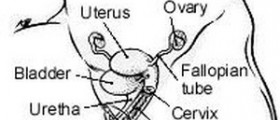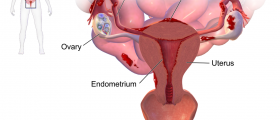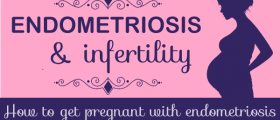
Uterine fibroids and endometriosis are the most frequently reported problems of women in their reproductive years. The incidence of both conditions has reached epidemic portions so that more that a half of million women in the United States have to undergo hysterectomy because of these two health issues. Hysterectomy is an invasive surgical procedure which includes the removal of the entire uterus. Therefore, women who have undergone hysterectomy are not able to have a child any more. This is the reason why such treatment is left as last resort only for patients suffering from severe forms of both endometriosis and uterine fibroids.More about Uterine Fibroids
Uterine fibroids are benign tumors/growths that affect the wall of the uterus. They may be distributed on the inner surface of the organ, inside the muscle layer or be located on the outer surface of the uterus. A woman may have one or several uterine fibroids. The size of these benign growths also differs.
The very presence of uterine fibroids is either asymptomatic or associated with a variety of symptoms and signs like heavy menstrual bleeding, abdominal or pelvic pain, repeated bladder infections, painful intercourse etc. The most serious complication of uterine fibroids is infertility. Women in whom fibroids do not cause health problems do not need any treatment at all. Others, however, must be treated either conservatively or surgically, especially if they want to conceive which is sometimes impossible because of the disease. Spontaneous resolution of uterine fibroids may occur in menopause.More about Endometriosis
Endometriosis is quite different condition comparing to uterine fibroids. The only thing these two have in common is infertility, a complication that may affect both women with uterine fibroid and those suffering from endometriosis.
If a woman is dealing with endometriosis, she actually experiences different symptoms and signs all of which are connected to the presence of endometrial cells somewhere outside the uterus, in the ovaries, fallopian tubes, on the peritoneum or other organs in the pelvis.
Such patients commonly report pelvic pain of different intensity (especially during menstruation), abnormal or heavy bleeding etc.
Endometriosis is successfully treated with hormonal therapy which must be long-term. Cessation of treatment leads to recurrence of all symptoms of the disease. Women who are suffering from endometriosis-associated infertility may benefit from surgical resection of abnormal implants.
Unfortunately, extreme cases of endometriosis which cannot be brought under control with conservative treatments or surgical removal of the abnormal implants require more aggressive surgery called hysterectomy.
















Your thoughts on this
Loading...